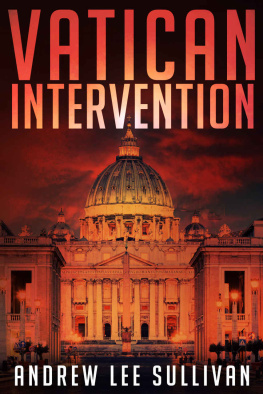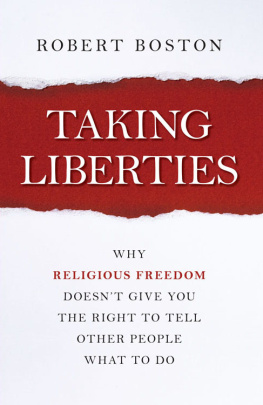Winnifred Fallers Sullivan - Politics of Religious Freedom
Here you can read online Winnifred Fallers Sullivan - Politics of Religious Freedom full text of the book (entire story) in english for free. Download pdf and epub, get meaning, cover and reviews about this ebook. year: 2015, publisher: University of Chicago Press, genre: Religion. Description of the work, (preface) as well as reviews are available. Best literature library LitArk.com created for fans of good reading and offers a wide selection of genres:
Romance novel
Science fiction
Adventure
Detective
Science
History
Home and family
Prose
Art
Politics
Computer
Non-fiction
Religion
Business
Children
Humor
Choose a favorite category and find really read worthwhile books. Enjoy immersion in the world of imagination, feel the emotions of the characters or learn something new for yourself, make an fascinating discovery.

- Book:Politics of Religious Freedom
- Author:
- Publisher:University of Chicago Press
- Genre:
- Year:2015
- Rating:4 / 5
- Favourites:Add to favourites
- Your mark:
- 80
- 1
- 2
- 3
- 4
- 5
Politics of Religious Freedom: summary, description and annotation
We offer to read an annotation, description, summary or preface (depends on what the author of the book "Politics of Religious Freedom" wrote himself). If you haven't found the necessary information about the book — write in the comments, we will try to find it.
Politics of Religious Freedom — read online for free the complete book (whole text) full work
Below is the text of the book, divided by pages. System saving the place of the last page read, allows you to conveniently read the book "Politics of Religious Freedom" online for free, without having to search again every time where you left off. Put a bookmark, and you can go to the page where you finished reading at any time.
Font size:
Interval:
Bookmark:
Edited by Winnifred Fallers Sullivan, Elizabeth Shakman Hurd, Saba Mahmood, and Peter G. Danchin
The University of Chicago Press
Chicago and London
Winnifred Fallers Sullivan is professor in and chair of the Department of Religious Studies at Indiana UniversityBloomington. She is also an affiliated professor of law at Indiana UniversityBloomington Maurer School of Law. Elizabeth Shakman Hurd is associate professor in the Departments of Political Science and (by courtesy) Religious Studies at Northwestern University. Saba Mahmood is associate professor in the Department of Anthropology at the University of California, Berkeley. Peter G. Danchin is professor of law and director of the International and Comparative Law Program at the University of Maryland School of Law.
The University of Chicago Press, Chicago 60637
The University of Chicago Press, Ltd., London
2015 by The University of Chicago
All rights reserved. Published 2015.
Printed in the United States of America
24 23 22 21 20 19 18 17 16 15 1 2 3 4 5
ISBN-13: 978-0-226-24847-9 (cloth)
ISBN-13: 978-0-226-24850-9 (paper)
ISBN-13: 978-0-226-24864-6 (e-book)
DOI: 10.7208/chicago/9780226248646.001.0001
Library of Congress Cataloging-in-Publication Data
Politics of religious freedom / edited by Winnifred Fallers Sullivan, Elizabeth Shakman Hurd, Saba Mahmood, and Peter G. Danchin.
pages cm
Includes bibliographical references and index.
ISBN 978-0-226-24847-9 (cloth : alkaline paper)ISBN 0-226-24847-X (cloth : alkaline paper)ISBN 978-0-226-24850-9 (paperback : alkaline paper)ISBN 0-226-24850-X (paperback : alkaline paper)ISBN 978-0-226-24864-6 (e-book)ISBN 0-226-24864-X (e-book)
1. Religion and politics. 2. Freedom of religion. I. Sullivan, Winnifred Fallers, 1950 editor. II. Hurd, Elizabeth Shakman, 1970 editor. III. Mahmood, Saba, 1962 editor. IV. Danchin, Peter, G., editor.
BL65,P7P64235 2015
323.44'2dc23
2014042990
This paper meets the requirements of ANSI / NISO Z39.48-1992 (Permanence of Paper).
T his volume is a collaborative effort in the best sense of those words, and the editors are immensely grateful to the contributors for their patience and generosity as this volume came together. The editors also wish to acknowledge the generous support of the Henry Luce Foundation, and of Toby Volkman, in particular, whose support of this project has been unstinting. We also thank Jonathan VanAntwerpen, Jessica Polebaum, and Wei Zhu at the Immanent Frame; Penelope Ismay and Neil Gali at the University of CaliforniaBerkeley; Mona Oraby at Northwestern University; Kerilyn Harkaway-Krieger at Indiana University; and Chris Rhodes and the anonymous reviewers for the University of Chicago Press.
Winnifred Fallers Sullivan, Elizabeth Shakman Hurd, Saba Mahmood, and Peter G. Danchin
Robert Yelle
Yvonne Sherwood
Elizabeth Shakman Hurd
Webb Keane
Courtney Bender
Greg Johnson
Rosalind I. J. Hackett
Evan Haefeli
David Sorkin
Robert W. Hefner
Samuel Moyn
Saba Mahmood
Benjamin Schonthal
Nandini Chatterjee
Waheeda Amien
Nadia Marzouki
Lori G. Beaman
Elizabeth A. Castelli
Winnifred Fallers Sullivan
Peter G. Danchin
Ann Pellegrini
Ccile Laborde
Noah Salomon
Michael Lambek
Hussein Ali Agrama
Mathijs Pelkmans
Wendy Brown
Winnifred Fallers Sullivan, Elizabeth Shakman Hurd, Saba Mahmood, and Peter G. Danchin
I n a remarkably short period, religious freedom has been naturalized in public discourse worldwide as an indispensable condition for peace in our time, advocated around the world and across the religious and political spectrum. Supported by a flood of reports purporting to document a rise in global religious suppression, a wide range of public and private international actorsincluding states, international organizations, private foundations, and nongovernmental organizations, as well as academicshave responded with laws, programs, projects, and policies designed actively to promote the right to religious freedom. Older guarantees to religious freedom built into laws and constitutions over the last few centuries are being mobilized, while such provisions are also being introduced into new legal instruments, trade agreements, constitutions, and legislation. In many legal and public policy circles today, religious freedom is being presented as the key to emancipating individuals and communities from violence, poverty, and oppression. Indeed, the gospel of religious freedom is often said to lead comprehensively to democracy, greater civil and political liberty, and prosperity.
Everyone seems to be for it. But what are they for? What exactly is being promoted through the discourse of religious freedom, and what is not? What is being protected under these various legal instruments? What forms of politics are enabled by these activities? How might we describe the cultural and epistemological assumptions that underlie this frenzy, and what is its longer history?
This volume brings together a collection of essays that emerged out of an edited set of blog posts on the Immanent Frame website (hosted by the Social Science Research Council) as a part of the Politics of Religious Freedom research project, a three-year effort funded by the Henry Luce Foundation to study the discourses of religious freedom in South Asia, North Africa, the Middle East, Europe, and the United States; it later was expanded to include research on sub-Saharan Africa and Brazil. The volume is divided into four sections: Religion, History, Law/Politics, and Freedom, each with a brief preface by one of the editors.
Over the course of the project, the conversation has spread out well beyond the four project leaders and editors; it has become a broad collaborative effort to describe an importantly complex phenomenoncomplex well beyond our initial intuitions, one not easily reduced to a single narrative or explanatory framework. The scholars who responded to our invitations, many of whom are represented in this volume, and others who contributed to our other publications, have helped us to think through these questions in new ways. The essays collected here unsettle the assumptionso ubiquitous in policy circlesthat religious freedom is easily recognized and understood, and that the only problem lies in its incomplete realization.
Our project does not take a position for or against religious freedom. Rather, we are interested in laying out the kind of work that advocacy for religious freedom has done and is doing in various times and places, and the kind of political and legal worlds it has created and is creating. Our basic assumption is that, before either championing religious freedom or rejecting it, we need to understand the complex social and legal lives of this concept. Those impatient for an improved definition of religious freedom, or those demanding a political manifesto, may be disappointed by this book. But to understand the contested historical genealogy of the concept of religious liberty, we believe it is important to grasp the ways in which this seemingly obvious and neutral right has yielded mutually contradictory and often discriminatory results. Our hope is that policy makers, academics, and others will learn, as we have, from examining this often messy story.
We have also sought to learn from cases in which religious freedom discourse is or was absent, including examining the regulation of religion in places and times distant from the present. For example, looking at the various legal regimes that coexisted in Mughal-ruled India, as Nandini Chatterjees work has done, reveals not Muslim legal hegemony (or legal pluralism in a formal statist sense) but forum shopping and permissive legal centralization; not religious equality but religious multiplicity fitted into a system of religiopolitical hierarchy; not rigid faith boundaries but fluid and interpenetrating religious identities and communities, a situation that belies the common assumption that a Muslim state necessarily limits legal possibilities. Considering such examples poses crucial questions to those engaged in the promotion of religious freedom as a human right today. What is missing when religious freedom is imagined exclusively through the lexicon of liberal rights as a set of discrete freedoms claimed by individuals or groups from an assumedly neutral and secular state? What claims can and cannot be made regarding religion, personhood, and freedom? What modes of religiosity, notions of religious difference or nondifference, and idioms of social order and harmony are rendered unintelligible or incoherent?
Font size:
Interval:
Bookmark:
Similar books «Politics of Religious Freedom»
Look at similar books to Politics of Religious Freedom. We have selected literature similar in name and meaning in the hope of providing readers with more options to find new, interesting, not yet read works.
Discussion, reviews of the book Politics of Religious Freedom and just readers' own opinions. Leave your comments, write what you think about the work, its meaning or the main characters. Specify what exactly you liked and what you didn't like, and why you think so.

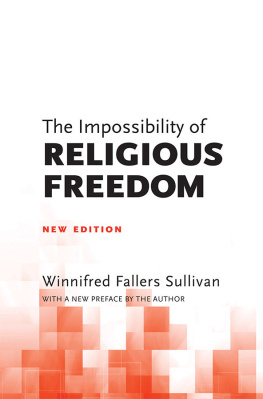
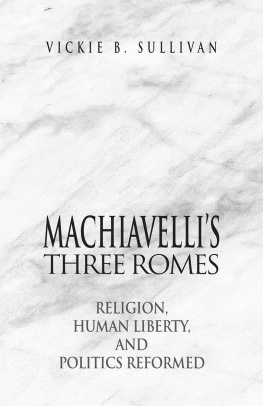
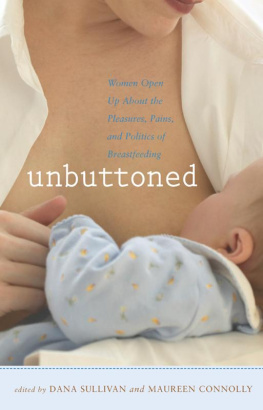
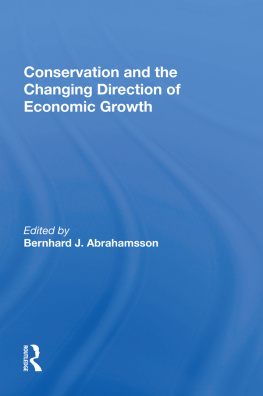
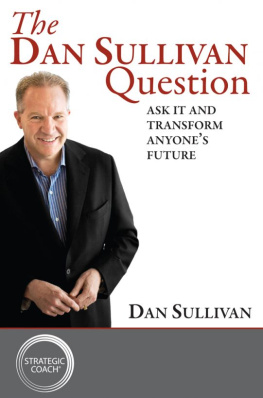
![Blackford - Freedom of religion [and] the secular state](/uploads/posts/book/167779/thumbs/blackford-freedom-of-religion-and-the-secular.jpg)
